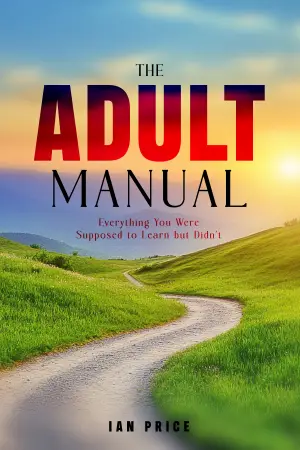Review of The Richest Man in Babylon by George S. Clason
As a passionate reader and an advocate for financial literacy, I was curious about The Richest Man in Babylon after hearing its praises ring through various circles. This book presents timeless lessons on wealth-building through captivating parables from ancient Babylon. Intrigued by its promise of practical, actionable financial wisdom, I dove in, eager to uncover its secrets.
The layout and design of the Deluxe Hardbound Edition truly caught my eye. As noted by another reader, Ione Brasil, this edition is not just visually appealing but also feels substantial in hand, making it a perfect gift or collectible. The smooth, neatly typeset pages enhance the reading experience, allowing one to absorb the lessons easily.
One of the highlights of the book is its clear presentation of fundamental financial principles. It teaches universal truths about saving, investing, and managing money efficiently. The parables, like those involving Bansir, the discouraged chariot builder, resonate with readers today as they did in ancient times. The central theme of "paying yourself first" echoed throughout my reading, serving as a constant reminder of the importance of prioritizing savings.
The narratives not only make complex financial concepts digestible but also keep the reader engaged. This was a major plus for me; many personal finance books tend to be dense and boring. Lively storytelling helps convey ideas that are often overlooked in more traditional texts.
However, it’s not all glitter and gold. Some readers like KathyO have pointed out that the book’s old-fashioned language can be a hurdle for modern audiences. I would agree that while the style does lend a historical charm, it can at times feel a bit cumbersome, especially for those not accustomed to classic English.
Additionally, the pacing of the parables might come across as repetitive for some, a point mentioned by Zardoz in their review. While I appreciated the reinforcement of key lessons, I felt moments where the narrative dragged slightly. It may require some patience from readers who are eager for rapid insights.
That said, the book delivers on the promise made in the product description: it offers practical financial wisdom for individuals at all income levels and equips readers with time-tested strategies for financial independence. I found myself highlighting passages about managing expenditures and investing wisely, such as the concept of guarding one’s savings against loss.
As for my personal experience, I came to realize the value of adapting some of these principles into my life. The strategies laid out in the book—especially the "seven cures for a lean purse"—are simple yet effective and have encouraged me to take a more proactive stance on my finances.
In conclusion, The Richest Man in Babylon is a must-read for anyone looking to enhance their financial knowledge. It may have a few drawbacks, such as occasional outdated language and pacing that feels redundant at times, but the practical takeaways far outweigh these issues. If you’re preparing for a financial reset or just beginning your journey into personal finance, this book will serve as an invaluable guide. I would highly recommend it to young adults and anyone who appreciates the wisdom of ages reflected in accessible storytelling. Whether you’re well-versed in finance or just starting out, there’s something to gain from this timeless classic.
Rating: ★★★★☆ (4.5 out of 5 stars)
Discover timeless financial wisdom in The Richest Man In Babylon. >>








